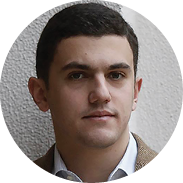Sebastião Bugalho
The tenth presidential elections of the Third Republic will be different. The elections results may send signs of warning that there is something urgent that needs to be looked after: The country.
The tenth presidential election of the Third Republic will be different from the preceding.
The young Portuguese democracy, one legislature away from celebrating its fiftieth anniversary, reached the plenitude of its political possibilities in the last decade. Parliamentary representation currently includes conservatives, liberals, social-democrats, ecologists, communists and right wing and left wing populists – all of them, in light of the recent and subsequent dispersion of the financial crisis, now increasingly vocal as regards their ideology.
Governance, in turn, was also a wide range of models in the past 46 years to the test on: president-appointed government, right-wing coalition, central bloc, right-wing absolute majority and left-wing majority, minority governments and, after the last crisis, governments that resulted from parliamentary agreements. The consensus among those in power, although not widely spoken, is tacit: European welfare state, budgetary discipline, openness to foreign investment, human rights, climate change. Alliances to reach power, on the contrary, are less consensual, more unpredictable and, therefore, the focus of greater discussion.
In order to better understand the meaning of the next presidential elections we need to focus on both the Portuguese electorate and the country’s history, that is, the experience the democratic regime has accumulated until now. The regime may be new but it has lived a full life. With mistakes yet to acknowledge and future opportunities; with failures and celebrations in equal amount and unequal importance. The elections for the head of State scheduled for next year will take place in a highly unlikely and unpredictable context, with a predetermined winner and decisive result.
The institutional unity that the presidency of Marcelo Rebelo de Sousa cultivated in his first term – from the political stability he offered to António Costa’s ‘contraption’ to the near merger between sovereign bodies during the pandemic – was a consequence of the events faced by his Presidency (the exit from an excessive deficit procedure, the forest fires tragedy, the start of a health crisis) and will be a catalyst for the future of the country, of the President and of his re-election.
From 2016 to 2020, there was a clear alignment between the Parliament (with a left-wing majority), the Government (sustained by that majority) and the president’s Belém Palace. This is not passing judgment but rather a fait accompli: the endorsements of the President of the Parliament and the Prime Minister to a re-election of Marcelo are not there yet to prove this.
The problem of concentrating this triangle of institutions on a single vertex, on a single idea – and in presidential elections on a single personality – is that institutions, if united, will cease to be so. This combination, as noble or tactic as it may have been and which motivated this will contribute to unusually inorganic presidential elections. In other words: if Marcelo is the whole regime, he will be attacked by all those not happy with the regime – represented, respectively, by the candidacies of André Ventura and Ana Gomes.
Just look, for example, at the difference between candidates. In 2016, Marcelo beat an academic (Sampaio da Nóvoa), a relatively moderate MEP (Marisa Matias), a communist and former priest (Edgar Silva) and a former Socialist Party president (Maria de Belém). In 2021, Marcelo will face a right-wing populist (André Ventura) and an outsider from the Socialist Party (Ana Gomes) in a race that promises to reduce the weight of the remaining candidates, who are also dependent on party polarizations and party proof-of-life tests (BE, PCP, IL).
The President refutes the accusations of sticking to the Socialist Party as best as he can, being as he is a native (and heritage) of the democratic right wing. On the one hand, there is the aforementioned argument of political stability (in a country that has just emerged from a deep crisis); and on the other, the realization that there is no concrete alternative to the PS, in light of a political landscape marked by the divisions within the right wing party Marcelo was also a founder of; populist dissent (Chega); idealist dissent (Liberal Initiative); and personal dissent (Aliança).
Marcelo Rebelo de Sousa will then arrive at the Presidential elections involved in a sum of paradoxes. He bets on an informal and proximity Presidency, but he relies also on the support of the main institutions of the regime. He is someone with a right wing history, but he is viewed with estrangement and mistrust by the political area that he helped establish. He was formed, carved and baptized by the previous regime, but he will be the standard-bearer of the current regime. He spent five years being accused of being addicted to popularity and now faces a generically populist competition.
The tenth presidential elections of the Third Republic will be different from the preceding for all this. The regime is now ripe enough to allow for its institutions and protagonists to be assessed and the incumbent represents a coalition of these institutions, inevitably subjecting them to joint scrutiny while his opponents symbolize everything that questions them – in the case of André Ventura, he even wields regime change as a flag.
Ironically or not, voting Marcelo Rebelo de Sousa in 2021 will thus become a vote in the Republic that came out of the April revolution, and the presidential elections will be like voting in a referendum on a regime that, with its vices and virtues, is a direct result of the April revolution. The elections results will not result in immediate or revolutionary changes, but may send signs, like a siren down the street, warning that there is something urgent that needs to be looked after. The country.







